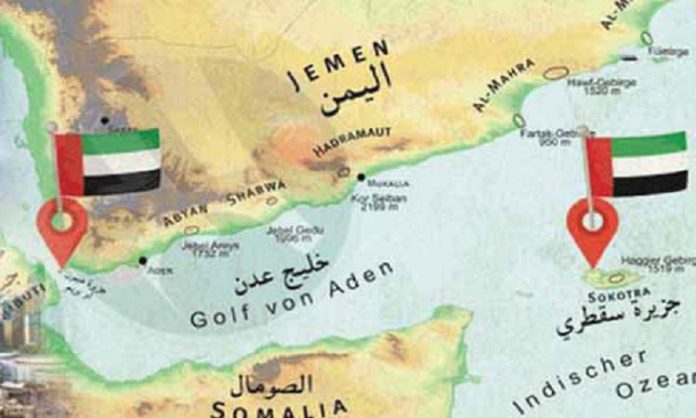Israeli media have revealed that Israel and the United Arab Emirates (UAE) are intensifying efforts to establish military and intelligence infrastructure on the occupied Socotra Archipelago.
The Hebrew newspaper Maariv reported that following the Al-Aqsa Storm operation on October 7, the UAE increased its efforts in collaboration with Israel to build a joint military and intelligence base on the occupied Socotra Island in the Arabian Sea, located 350 kilometers south of Yemen.
The newspaper acknowledged that the UAE has sought to extend its control over the strategic archipelago since it joined the Saudi coalition against Yemen in 2015. After the Al-Aqsa Storm operation, it accelerated its coordination with Tel Aviv in constructing military and intelligence sites in the Socotra Archipelago, including Socotra Island.
It admitted that this is a long-term project introduced as part of the normalization agreement between Israel and other Arab regimes in the Gulf involved in these projects, forming an “alliance being established under an American cover.”
Maariv explained that since the start of the Al-Aqsa Storm operation on October 7, the pace of construction has accelerated, with a primary focus on building an “Emirati-Israeli” military base on Abd al-Kuri Island, the second-largest island in the archipelago after Socotra.
It indicated that this archipelago, along with other Yemeni islands and ports, represents a central point, and the formation of the aforementioned alliance has become more urgent for all parties involved.
As part of this project, the Israeli Chief of Staff Herzi Halevi met with the US Central Command General Michael Kurilla and military leaders from the UAE and other countries last June.
According to Maariv, the ultimate goal of the project is to link Israel’s forces and security apparatus with the Arab countries engaged with it under the cover of US Central Command.
The UAE participated in the aggressive war on Yemen and took it as a way to achieve its goals in the south of the country. During the nine years of participation, it was accused of several practices that infringed upon Yemen’s sovereignty, security, unity, independence, and territorial integrity.
The UAE sought to gain influence in the Yemeni coastal areas and the country’s south, intending to strengthen its presence at the maritime shipping lines in the Gulf of Aden and the Bab al-Mandab Strait, towards the Horn of Africa.
The increasing rifts between Saudi Arabia and the UAE prompted the two countries to strengthen their presence in the occupied governorates, as each of them established alliances with Yemeni factions and used them to achieve their goals.




















